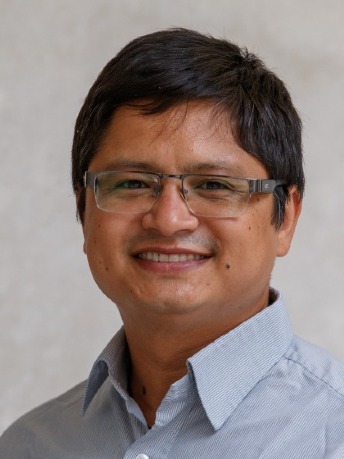Hoe redden we de Duurzame Ontwikkelingsdoelen van de ondergang?

Vandaag, 18 september, houdt de Verenigde Naties een topconferentie om de voortgang rond Duurzame Ontwikkelingsdoelen (SDG’s) te bekijken. De impact van de SDG’s is beperkt, schreven experts vorige week in Science . Eén van de auteurs is Prajal Pradhan van de Rijksuniversiteit Groningen, die wil onderzoeken wat er nodig is om de SDG’s te redden van de ondergang. Vijf vragen over zijn onderzoeksplannen.
FSE Science Newsroom | Charlotte Vlek
Waarom moeten de SDG’s gered worden?
‘Veel overheden nemen de SDG’s niet erg serieus. Niet één land staat voorgesorteerd om de doelen in 2030 te halen; dat komt omdat landen momenteel selectief kiezen: ze richten zich op de doelen die passen bij wat ze al doen. Maar als we blijven consumeren zoals we momenteel in de westerse wereld doen, halen we alle SDG’s naar beneden.’
Je bent onlangs begonnen aan een tenure-track positie bij de Rijksuniversiteit Groningen. Je onderzoek zal zich richten op de wisselwerking tussen SDG’s. Op wat voor manier hangen de SDG’s met elkaar samen?

‘Er bestaan wisselwerkingen tussen de verschillende doelen. Als we honger in lage-lonenlanden willen bestrijden, zou één oplossing kunnen zijn dat we de landbouw intensiveren, zodat we meer eten produceren. Dit kan misschien de honger gedeeltelijk oplossen, maar het is niet goed voor de biodiversiteit, en er gaat veel energie op aan de productie en het transport van het eten. In plaats daarvan zouden we moeten zorgen voor een eerlijkere verdeling van voedsel, klimaat-vriendelijk en agro-ecologische productie, minder vlees en meer plantaardige diëten.’
‘In ons onderzoek willen we modellen ontwikkelen van de wisselwerkingen tussen SDG’s. Met zulke modellen kunnen overheden geïnformeerd worden op welke SDG’s zich het beste kunnen richten in hun specifieke situatie. Dat zal verschillen tussen hoge-lonenlanden en lage-lonenlanden. Als voorbeeld wil ik Nederland uitwerken als hoge-lonenland, en Nepal, waar ik vandaan kom, als lage-lonenland.’
Je bent ook van plan te onderzoeken wat de gevolgen zijn als we de SDG’s niet gaan halen voor 2030. En zelfs of we meer zouden moeten doen?
Als iedereen er een westerse levensstijl op na zou houden, zou je drie aardes nodig hebben.
‘Het halen van de SDG’s betekent niet automatisch dat we volledig duurzaam zijn. We gebruiken momenteel ongeveer 1,75 keer de beschikbare grondstoffen op aarde. Als iedereen er een westerse levensstijl op na zou houden, zou je zelfs drie aardes nodig hebben. We willen achterhalen of de SDG’s wel ambitieus genoeg zijn om echte duurzaamheid op lange termijn te bereiken. En we willen meer aandacht voor de SDG’s vragen door expliciet te maken wat er zou gebeuren als we ze niet halen.’
Er is ook kritiek geweest op de SDG’s. Waarom?
‘De SDG’s zijn politiek geformuleerde doelen. Het zijn aspiraties, maar ze zijn niet altijd meetbaar, realistisch, tijdsgebonden. En ze zijn niet juridisch bindend. In ons artikel in Science, vorige week gepubliceerd, belichten we vier hervormingen om de SDG’s te verbeteren. We stellen voor om te differentiëren tussen hoge-inkomenslanden en lage-inkomenslanden, om de doelen meer aan te passen aan veranderende omstandigheden, om ze zoveel mogelijk juridisch bindend te maken, en om een organisatie in te stellen die de voortgang op de SDG’s in de gaten houdt.’
‘Bijvoorbeeld: hoge-inkomenslanden moeten misschien meer werken aan het terugschroeven van de uitstoot van broekasgassen, terwijl lage-inkomenslanden moeten toewerken naar minder armoede op een duurzame manier. En we moeten onze doelen blijven bijstellen. In 2015 gingen de SDG’s nog over mensen die op een inkomen van minder dan 1,25 dollar per dag leven. Nu, na covid en Oekraïne, moet dat getal misschien wel hoger zijn, vanwege de stijgende prijzen.’
Welke toekomst zie je voor de SDG’s?
Wat we nu doen is niet genoeg.
‘Wat we nu doen is niet genoeg. We moeten onszelf ertoe aanzetten om zoveel mogelijk van de doelen te behalen tegen 2030. Individuen moeten dingen doen, maar ze moeten wel de omstandigheden hebben die hen daartoe in staat stellen, en daar moeten beleidsmakers voor zorgen. Die moetende SDG’s meer systematisch gaan benaderen.’
'Gelukkig is er ook een positieve kant: in de afgelopen zeven jaar heeft er veel SDG-tagging plaatsgevonden. Mensen hebben hun activiteiten gelabeld aan de hand van specifieke SDG’s; wat niet hetzelfde is as greenwashing! Taggen helpt om de SDG’s gewoner te maken, en om meer bewustwording te creëren. Hoewel dit slechts de eerste stap is richting een meer duurzame transformatie. De conferentie van de VN deze week zou kunnen helpen om de wereldwijde inzet voor succesvolle uitvoering van de SDG’s te bewerkstelligen.’
Referenties:
-
Prajal Pradhan, A threefold approach to rescue the 2030 Agenda from failing. National Science Review, 2023. Doi: 10.1093/nsr/nwad015
-
Frank Biermann, Yixian Sun, Dan Banik, Marianne Beisheim, Michael J. Bloomfield, Aurelie Charles, Pamela Chasek, Thomas Hickmann, Prajal Pradhan, Carole-Anne Sénit. Four governance reforms to strengthen the SDGs. Science, 2023. Doi: 10.1126/science.adj5434
Prajal Pradhan is onlangs begonnen in een tenure-track positie aan de Rijksuniversiteit Groningen, bij Integrated Research on Energy, Environment and Society (IREES). Voorheen werkte hij bij het Potsdam Institute for Climate Impact Research. Zijn onderzoeksproject bij de RUG zal worden gefinancierd met een ERC HORIZON Starting Grant .
Meer nieuws
-
17 februari 2026
De lange zoektocht naar nieuwe fysica
-
10 februari 2026
Waarom slechts een klein aantal planeten geschikt is voor leven
